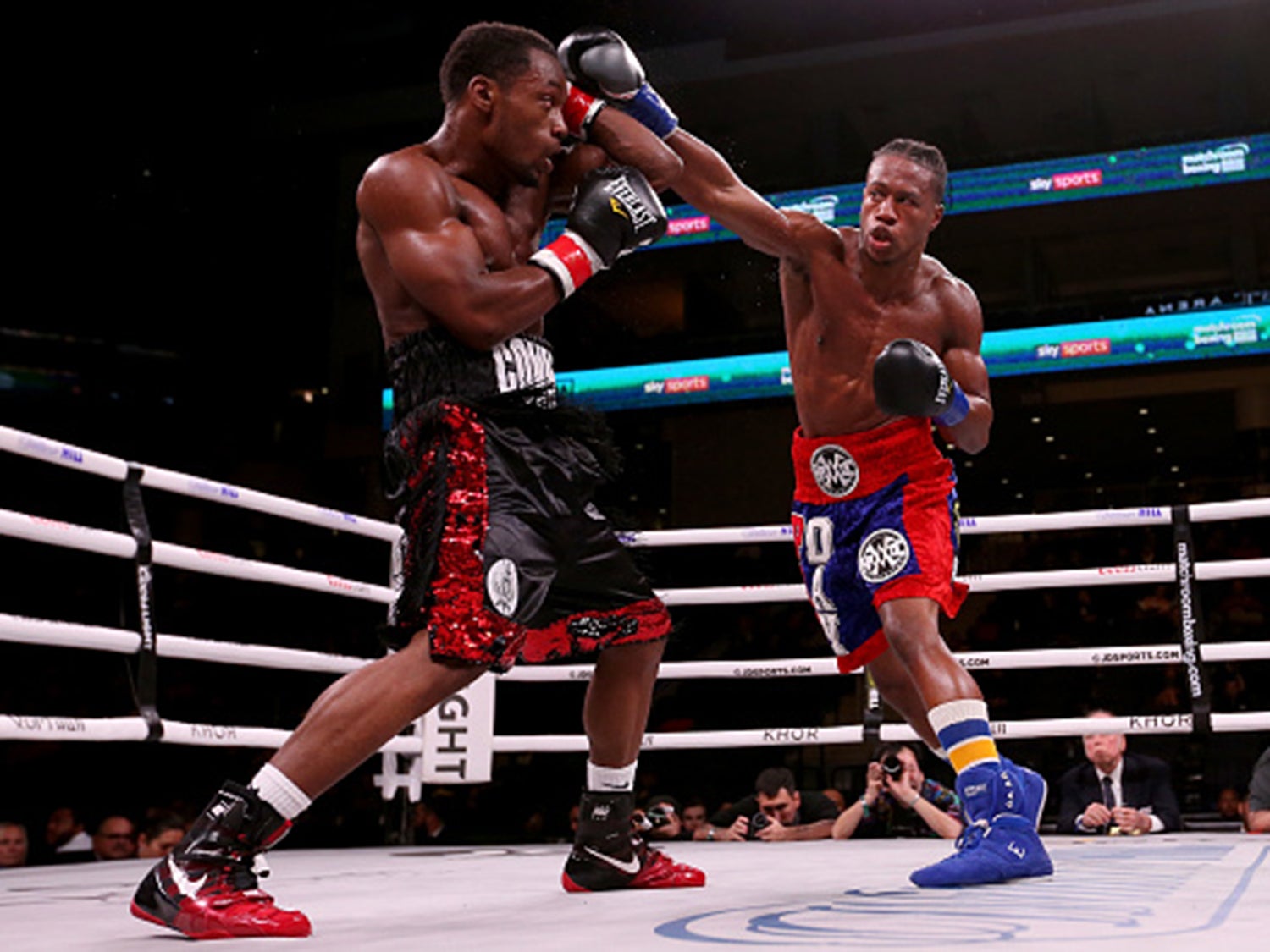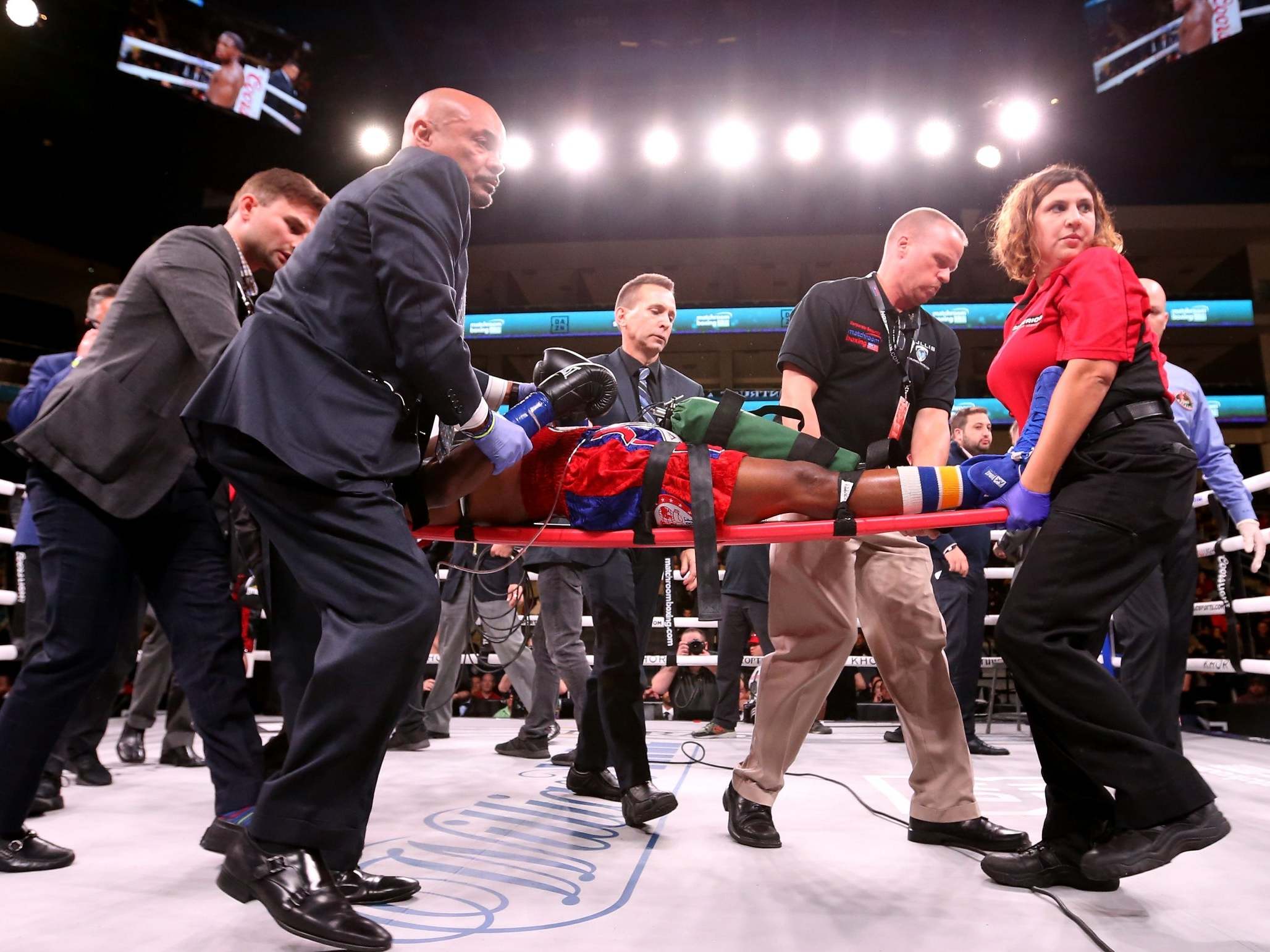Patrick Day’s death is a stark reminder of boxing’s danger – and how hard it is to prevent tragedy
Boxing has exemplary safety measures but little can be done to stop catastrophes like this happening again

Your support helps us to tell the story
From reproductive rights to climate change to Big Tech, The Independent is on the ground when the story is developing. Whether it's investigating the financials of Elon Musk's pro-Trump PAC or producing our latest documentary, 'The A Word', which shines a light on the American women fighting for reproductive rights, we know how important it is to parse out the facts from the messaging.
At such a critical moment in US history, we need reporters on the ground. Your donation allows us to keep sending journalists to speak to both sides of the story.
The Independent is trusted by Americans across the entire political spectrum. And unlike many other quality news outlets, we choose not to lock Americans out of our reporting and analysis with paywalls. We believe quality journalism should be available to everyone, paid for by those who can afford it.
Your support makes all the difference.Patrick Day never wanted to die in the ring but he did want to be a professional boxer and he knew every risk he took each time he stripped to fight, each time he walked to the ring and tried to knock out the man in the opposite corner.
Last Saturday, in an undercard fight in Chicago, Day was dropped three times and stopped in round ten by a promising young, unbeaten fighter called Charles Conwell; Conwell is not known as a ruthless puncher and the sad history of boxing deaths is full of nice guys like Conwell killing innocent men like Day. It is part of our bloody and, at times, indefensible business.
Day was rushed to hospital after the fight, rushed through observation, x-rays and prepared for theatre. That’s the grim nuts and bolts version of the desperate fight to save a boxer once he leaves the care of his trainer and family and ends up in the rubber-gloved hands of a neurosurgeon. Day lingered in a blue-light twilight on Sunday, Monday, Tuesday and then he died on Wednesday. Boxing, for the fourth time in four months, mourned for a dead fighter. Day was 27, the loss was his fourth in 22 fights.
It needs to be pointed out that there was nothing that could have improved Day’s chance of living once he signed for the fight, arrived at the venue and entered the ring. Day was, according to all those who knew him, a nice guy, a contender in his own right and not a boxer on a dreadful losing streak. He had lost his previous fight, a tough ten-rounder, but his management would have not gone through with the Conwell fight if they thought the loss was relevant. This is important, they cared.
Day was looked after by good people, had cleared all pre-fight medicals, he was guided by experienced men in his career and he was not a kid with problems away from the ring – the kind of problems that can help shorten the life expectancy of a boxer. Day’s mother was a translator, his father a doctor and he was college-educated: he never needed to fight, he just wanted to fight.
Day was - like most of the dead men I have covered, met, befriended, cried over, interviewed, written about, spoken about - just an ordinary man trying to get a living in the world’s most frustrating of legal sports. The business of boxing has exemplary safety measures – the British Boxing Board of Control has the finest system in the world – and procedures, but men and women will die and there is absolutely nothing that can be done to prevent death. The debate about boxing’s future is tiresome; people want to fight and it is far better if they operate under strict rules and not in some underground abattoir. And, there are, trust me, lots of those illegal fighting pits operating in Britain and masquerading as ‘boxing’ events.
During the last week I have been ringside to watch 11-year-old boys box on their club show in the Midlands, ringside for the boxing fairy tale that is Josh Warrington in Leeds, on Sunday morning I took testimony from men and women spared prison by their devotion to boxing and on Wednesday night, as the machines in Day’s fragile life went blank, I interviewed Sam Eggington, the former British welterweight champion. He has the same dreams as Day and he told me a life-affirming tale or two.
Egginton is 26 now, turned professional at 18 and fought for the first time for pay in a nightclub in Swansea. He received just under £1,200 and the total started to shrink before he was dressed. He had to pay his corner and he had to repay a debt for his MRI brain scan, a strict requirement for all British boxers before they can fight. Egginton travelled in a van back from Swansea to Birmingham, his stash reduced to about 400 quid, but he was happy.

“I had never had money like it,” he told me. Eggington was working as a fork-lift driver at the time, making just £4.68 each hour. He let himself in when he got back, his partner and his baby son were sleeping. “I made it rain with the money, I was so happy,” he continued. His life, in his eyes, was transformed that night, changed by what he had achieved in a boxing ring.
A few years later Egginton was British and European champion, now he has his eyes set on a world title at some point. Day was gazing in the same direction, both normal, decent men chasing one of the most dangerous dreams on the planet. The last word goes to Conwell, broken and suffering, and his hard message to his dead rival. “I thought about quitting boxing, but I know that’s not what you would want.” That’s boxing right there, no sense and yet it makes perfect sense to me.
Join our commenting forum
Join thought-provoking conversations, follow other Independent readers and see their replies
Comments